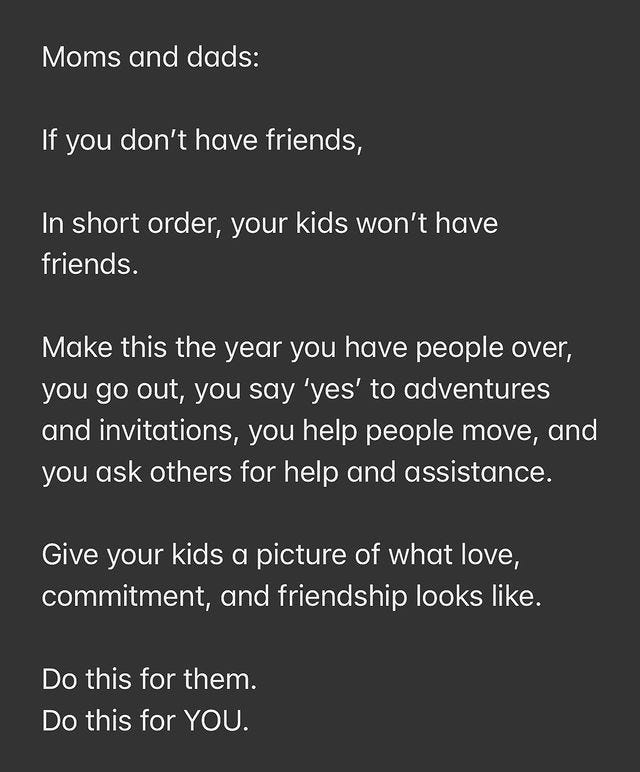A few weeks ago, a friend emailed me asking for help. Her 5-year-old had recently — and repeatedly — started announcing how smart he was. “I'm definitely worried he's running around saying stuff like that to the other kindergarteners and making them not like him,” she wrote.
I have been wanting to write about arrogance in kids for a while. Because of my own kids, of course, who sometimes (often? constantly?) claim they are experts at everything. Initially, I had trouble finding relevant science — turns out I was using the wrong keywords — but I persevered and recently uncovered a treasure trove of fascinating research.
The first thing to know is that most little kids — meaning kids under about the age of 8 — are rampant braggers. So if your child reminds you a bit too much of Elon Musk, rest assured she’s not the only one. There are many reasons why little kids exhibit over-confidence, but a big one is that they actually think bragging is helpful. In a 2017 study, psychologist Kristi Lockhart and her colleagues at Yale University found that 5- to 7-year-olds judged people who boasted as more likable than people who didn’t. When asked why, the kids explained that boasters “shared knowledge that was helpful to others.”
If that seems bonkers, bear with me. Imagine that you’re on a trip with friends and someone gets a bad cut on their arm, and you need to figure out who can help. In this situation, the friend who speaks up and says, “I’m actually great at tying tourniquets!” is doing everyone a service. Little kids seem to see bragging in this prosocial light, as the sharing of information that might end up being useful.
These perceptions change, however, once kids approach the age of 8. That’s when they start to recognize that boasting can be annoying and that people may brag not to be helpful but because they want to sound impressive. In the same study mentioned above, 8- to 10-year-olds (as well as adults) judged non-boasters as more likable than boasters. Other research has found that kids over 8 think that modest responses to praise are more appropriate than immodest responses, whereas kids under 8 say the opposite.
Why do young kids have such a different perspective? One reason is that they haven’t had enough social experience to learn that people who brag may be exaggerating or even lying to impress others, explained Trisha Katz, a psychology graduate student at Duke University who studies prosocial behavior and bragging. It also takes lots of cognitive resources to recognize that your own bragging could be interpreted by others as annoying or deceitful — you have to think several steps ahead and put yourself in other people’s shoes, Katz said. Quite a feat for a little kid’s developing brain.
Also, understanding what is bragging is — and how to distinguish it from straightforward informing — can be tricky. If you share that you hit 3 home runs in softball practice, is that bragging? Or does it depend on how you say it or how many times you say it? Your posture? Your tone? We often know it when we see it, but bragging is a nuanced phenomenon, Katz said, so it takes kids a while to figure out what’s appropriate and what’s not.
Another reason kids seem arrogant is because they are exceptionally optimistic about what they will be able to do in the future. Even when they’ve just experienced failure, kids tend to think that they will nevertheless soon succeed. Researchers have theorized that young kids are optimistic in part because they think of traits as malleable rather than stable, whereas adults tend to traits are stable rather than malleable. A kid might say, “I’m going to play soccer for Real Madrid when I grow up” (I’ve definitely heard that one in my house) or “I’m going to become a billionaire YouTube star (yup, that one too). Adults interpret these proclamations as unrealistic and egotistical, but to kids, they really seem possible.
Researchers speculate that kids’ optimism may partly be an evolutionary adaptation: Children have to learn so many hard skills and often initially struggle with them. If kids thought abilities didn’t change much, they would give up before they got anywhere. “It's great to be optimistic about yourself and your skills and your abilities because it keeps you motivated and persistent when you face failures, which children do a lot,” explained psychologist Lockhart, who studies children’s optimism and arrogance. Essentially, “it keeps them going,” she said.
Kids may also be optimistic because they are constantly being taught about famous people who’ve done amazing things. They don’t hear much, if anything, about people who become nobodies. This creates a kind of awareness bias, leading kids to think it’s relatively easy to do what’s actually quite hard. Moreover, adults are constantly asking little kids what they want to be when they grow up, implying that a person’s livelihood is determined entirely by personal choice. Combine that with common tropes we say to kids like “You can do anything if you set your mind to it!,” and no wonder kids think that anyone can grow up to be The Rock.
It's important to keep in mind that your kids probably brag more to you than they do to their friends. Research shows that kids inherently know it’s more acceptable to boast to adults than to their peers, so “just because they're doing it at home doesn't mean that they're doing it at school,” Katz said. Often, too, kids brag to us because they want us to be proud of them. “If a child knows that a trait or an achievement is valued by their parent,” Katz said, “it’s not surprising that they’ll want to shout it to the rooftops.”
What all this comes down to is this: If your kid is acting like an arrogant jerk at home, don’t fret. It’s normal and to be expected, given their perceptions and their developing brains. Their overconfidence is also probably evolutionarily adaptive, helping to nurture grit and motivation, and will likely peter out before the tween years. Plus, your kid’s friends probably don’t think your kids are as obnoxious as you do.
Still, how should you react when your kid says something cringey and boastful? There’s no one right answer, but here are a few suggestions.
If they brag about an accomplishment or honor that could make others feel bad — like that they got invited to a friend’s birthday party — Katz suggested encouraging them to take other people’s perspectives. You could say, “That’s great! But not everyone was invited, so talking about it might make kids who weren’t included feel bad.”
If they brag about something that’s inaccurate — like they confidently announce that sea turtles are the smartest creatures in the world — you could say something like, “That’s interesting. Let’s look that up to see if we can learn more about sea turtles,” and then gently correct them if you find something that contradicts what they said, Lockhart said.
If they brag about being good at something, Katz suggested acknowledging what they said but not dwelling on it. I’d probably respond with some growth mindset framing, too. You could say, “Yes, you are good at gymnastics, because you practice so much. If you keep practicing, you’ll get even better.”
Related posts:
And now onto this week’s parenting advice Hot Take! Today I’m going to share my thoughts on this Instagram post from John Delony that now has more than 17K likes:
My thoughts in a nutshell are this.







